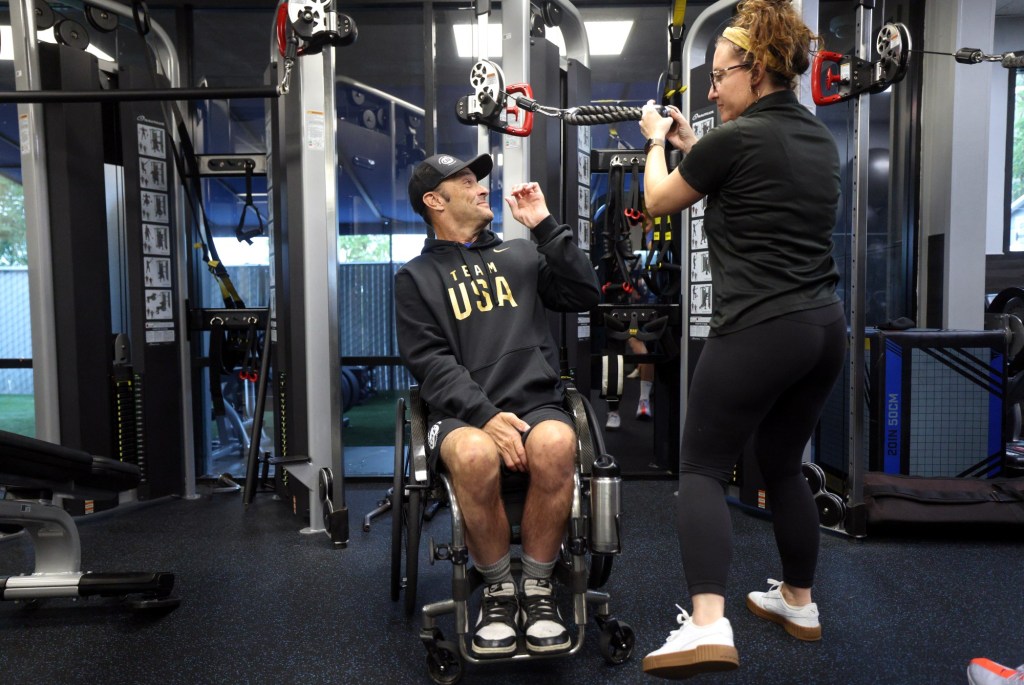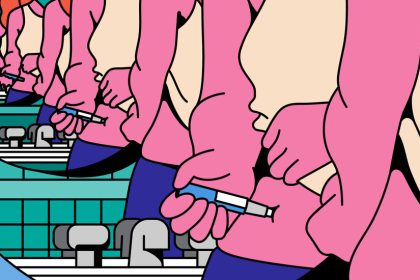David Wagner, a resident of San Diego and a seasoned competitor at the Paralympic Games, received financial support to aid his upcoming participation in the Australian Open tennis tournament. The Challenged Athletes Foundation, in collaboration with EōS Fitness, presented Wagner with a $1,000 check on Thursday morning during his workout session at an EōS gym in Encinitas.
“It’s going to go directly into more training and probably the next tournament,” Wagner remarked, his smile evident after the check was handed to him.
A lifelong athlete, Wagner’s journey is remarkable. After participating in sports like basketball and tennis in his childhood in Washington, he tragically became a quadriplegic at the age of 21 due to a beach accident while playing Frisbee. During his rehabilitation, Wagner found a new passion for table tennis, which ultimately set him on the path to wheelchair tennis.
Today, Wagner stands out as one of the leading wheelchair tennis players globally. His dedication has earned him an impressive haul of eight medals from various Paralympic Games — three golds, three silvers, and two bronzes. Now at 51 years old, Wagner is already eyeing the potential of competing in his sixth Paralympic Games, scheduled for Los Angeles in 2028.
“That’s kind of the hope,” he expressed after graciously posing for numerous photographs at the gym. “I hope to give it a run — you get older and it gets harder.”
Bob Babbitt, co-founder of the Challenged Athletes Foundation, has known Wagner for many years and remains optimistic about his chances of returning to the Paralympics.
“He’s an amazing young man — not young — (but) young for me,” he joked, laughing.
The Challenged Athletes Foundation has a rich history. Babbitt was inspired to launch the foundation in 1985 while covering Ironman competitions for Competitor Magazine. His motivation came after witnessing Jim MacLaren, an amputee athlete, who finished impressively in the top 20 percent at an event. However, a few years later, MacLaren was struck by a vehicle during another Ironman competition, becoming a quadriplegic and needing assistance to cover costs associated with an adaptive van.
What began as a mission to help a single individual transformed into a global foundation committed to supporting athletes with physical disabilities across 105 different sports, including baseball for the blind and para-Nordic skiing. Babbitt noted that the San Diego-based foundation has raised nearly $200 million over the years to support these athletes.
Wagner, who has benefited from the foundation’s generosity, has received at least eight grants over the last decade, which helped cover competition-related expenses and purchase necessary fitness equipment. This kind of support is crucial, especially with the upcoming Australian Open, scheduled for January 12 to February 1. Wagner explained that such an event often comes with significant costs, including a three- to four-week hotel stay, expensive plane tickets, and food expenses.
In addition to financial aid, Wagner emphasized the value of the community fostered by the foundation. It creates opportunities for athletes to connect, train together, and support one another. Reflecting on his own past, he shared that if he could speak to his younger self, who was recently injured and just 21 years old, he would advise seeking out the foundation’s help and exploring new sporting opportunities.
“The best advice I was ever given was to jump in and try it … don’t worry about failure, don’t worry about success,” he concluded, illustrating the message of resilience and adaptability that defines his journey as an athlete.






